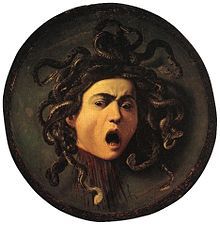...
Show More
Fun little farce set in London and surrounding areas during the "Sexual Revolution" of the '60s. Martin Lynch-Gibbons, a 41-year-old man, is quite content with his life. He is married to Antonia, who is 10 years older and whom he adores. However, he also has a mistress, the 20-something Georgie Hands. But then his life takes a drastic turn when he discovers that not only has Antonia been having an affair with her psychoanalyst, Palmer Anderson (who is also a good friend of Martin's), but she is planning to leave him and marry Palmer. Surprisingly, they both claim to love him and want to keep him close. And it gets even weirder from there. Martin falls under the spell of yet another woman. At first, he is repulsed by her, but then suddenly becomes obsessed with her. It becomes extremely difficult to keep track of who is sleeping with whom, but it makes for a lot of fun along the way. The story is filled with humorous and absurd situations that unfold during this chaotic time. It explores the complex relationships and the changing attitudes towards sex and love during the "Sexual Revolution." Overall, it's a lighthearted and entertaining farce that will keep readers engaged and laughing throughout.





 What are they? Victims? Perpetrators? Both? Or perhaps just hollow, shallow marionettes carrying out a danse macabre that has lost its charm after decades of sexual over-stimulation in media, art, and literature? Or maybe it's just not relevant to me at this particular moment in time. That's possible. This was my first encounter with Iris Murdoch, and I suspect I expected more, as my prejudice was that she is one of the great modern writers. I won't abandon my carefully constructed idea (based on nothing tangible) until I have read at least one or two more of her works. She clearly has the ability to write. But perhaps not necessarily the kind of novel that gets me excited.
What are they? Victims? Perpetrators? Both? Or perhaps just hollow, shallow marionettes carrying out a danse macabre that has lost its charm after decades of sexual over-stimulation in media, art, and literature? Or maybe it's just not relevant to me at this particular moment in time. That's possible. This was my first encounter with Iris Murdoch, and I suspect I expected more, as my prejudice was that she is one of the great modern writers. I won't abandon my carefully constructed idea (based on nothing tangible) until I have read at least one or two more of her works. She clearly has the ability to write. But perhaps not necessarily the kind of novel that gets me excited. 






